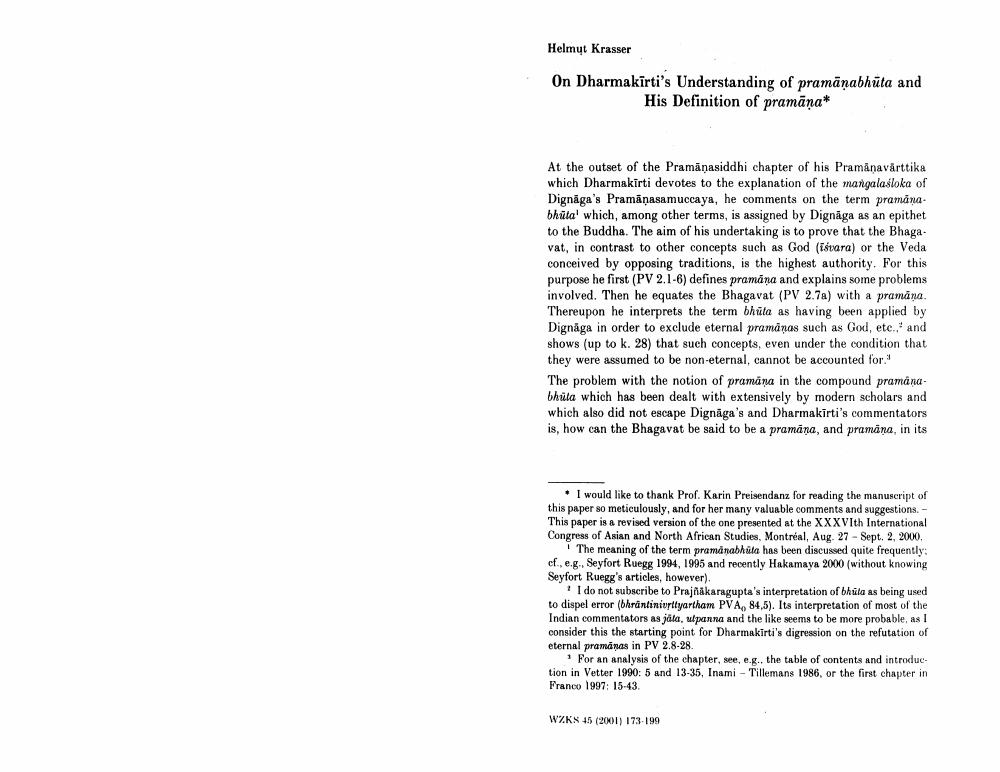Book Title: On Dharmakirtisunderstanding Of Pramanabhuta And His Definition Of Pramana Author(s): Helmut Krasser Publisher: Helmut Krasser View full book textPage 1
________________ Helmut Krasser On Dharmakirti's Understanding of pramānabhūta and His Definition of pramāna* At the outset of the Pramanasiddhi chapter of his Pramanavårttika which Dharmakirti devotes to the explanation of the mangalasloka of Dignåga's Pramāṇasamuccaya, he comments on the term pramana bhūta' which, among other terms, is assigned by Dignaga as an epithet to the Buddha. The aim of his undertaking is to prove that the Bhaga. vat, in contrast to other concepts such as God (isvara) or the Veda conceived by opposing traditions, is the highest authority. For this purpose he first (PV 2.1-6) defines pramāna and explains some problems involved. Then he equates the Bhagavat (PV 2.7a) with a pramana Thereupon he interprets the term bhūta as having been applied by Dignaga in order to exclude eternal pramānas such as God, etc.,' and shows (up to k. 28) that such concepts, even under the condition that they were assumed to be noneternal, cannot be accounted for." The problem with the notion of pramana in the compound pramanabhula which has been dealt with extensively by modern scholars and which also did not escape Dignāga's and Dharmakirti's commentators is, how can the Bhagavat be said to be a pramana, and pramana, in its . I would like to thank Prof. Karin Preisendana for reading the manuscript of this paper so meticulously, and for her many valuable comments and suggestions - This paper is a revised version of the one presented at the XXXVIth International Congress of Asian and North African Studies, Montréal, Aug. 27 - Sept. 2, 2000. The meaning of the term promanabhuta has been discussed quite frequently cf.e.g., Seyfort Ruegg 1994, 1995 and recently Hakamaya 2000 (without knowing Seyfort Ruegg's articles, however). "I do not subscribe to Prajnakaragupta's interpretation of bhula as being used to dispel error (bhrantiniurtyartham PVA, 84,5). Its interpretation of most of the Indian commentators as játa, panna and the like seems to be more probable, as I consider this the starting point for Dharmakirti's digression on the refutation of eternal pramanas in PV 2.8-28 For an analysis of the chapter, see, e... the table of contents and introduce tion in Vetter 1990: 5 and 13-35, Inami - Tillemans 1986, or the first chapter in Franco 1997: 15-43 WZKN 45 (2001) 173-199Page Navigation
1 2 3 4 5 6 7 8 9 10 11 12 ... 14
